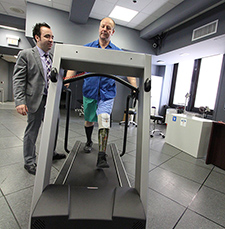Vietnam
See the following -
Can We Engage Private Pharmacies To Help Control Drug-Resistant Tuberculosis?
Antibiotic resistance and infectious diseases have long been high on my list of things to worry about, with multi-drug-resistant tuberculosis vying for top honors. In 2015, 10.4 million people became ill with tuberculosis, and 1.8 million died, making TB one of the top causes of death globally. Six countries account for 60% of the cases: China, India, Indonesia, Nigeria, Pakistan and South Africa. As I noted in a previous post, India is critically important to control of drug resistance as well as tuberculosis, as it has the highest TB burden, with 2.2 million infections annually, as well as the largest antibiotic consumption...
- Login to post comments
Co-op Scheme Aims To Boost Farmers’ Profits
An ambitions new agricultural development project backed by a former US diplomat is aiming to dramatically revamp the sector and bring profits back into the hands of farmers. Read More »
- Login to post comments
Developing Nations Improving Health Communication Through the Use of DHIS2 (Part 1)
 DHIS2 implementations are spreading steadily among national health services in developing countries as well as among international non-governmental organizations (NGOs) working to improving health in the developing world through the use of health information technology. As an open source solution, DHIS2 offers developing countries the advantage of adopting a cost-effective and flexible solution for aggregate statistical data collection, validation, analysis, management, and presentation as well as for data sharing between healthcare professionals and facilities. Organizations and individuals who work with humanitarian software solutions will need to know what DHIS2 is, how it works, and how it might be implemented by national health services and other health-related projects across the globe...
DHIS2 implementations are spreading steadily among national health services in developing countries as well as among international non-governmental organizations (NGOs) working to improving health in the developing world through the use of health information technology. As an open source solution, DHIS2 offers developing countries the advantage of adopting a cost-effective and flexible solution for aggregate statistical data collection, validation, analysis, management, and presentation as well as for data sharing between healthcare professionals and facilities. Organizations and individuals who work with humanitarian software solutions will need to know what DHIS2 is, how it works, and how it might be implemented by national health services and other health-related projects across the globe...
- Login to post comments
For Ailing Vets In Rural Areas, Telemedicine Can Be The Cure
Howard Lincoln of White Mountain, Alaska, doesn't always hear it when people knock on his door. He's 82 and he still has a little shrapnel in his jaw from a mortar shell that nearly killed him in the Korean War 60 years ago. "We heard it whistling, but I was the third one in line running toward the bunker," he recalls... Read More »
- Login to post comments
Peer into the Post-Apocalyptic Future of Antimicrobial Resistance
Aout 4 million years ago, a cave was forming in the Delaware Basin of what is now Carlsbad Caverns National Park in New Mexico. From that time on, Lechuguilla Cave remained untouched by humans or animals until its discovery in 1986—an isolated, pristine primeval ecosystem. When the bacteria found on the walls of Lechuguilla were analyzed, many of the microbes were determined not only to have resistance to natural antibiotics like penicillin, but also to synthetic antibiotics that did not exist on earth until the second half of the twentieth century...
- Login to post comments
Peer into the Post-Apocalyptic Future of Antimicrobial Resistance
Aout 4 million years ago, a cave was forming in the Delaware Basin of what is now Carlsbad Caverns National Park in New Mexico. From that time on, Lechuguilla Cave remained untouched by humans or animals until its discovery in 1986—an isolated, pristine primeval ecosystem. When the bacteria found on the walls of Lechuguilla were analyzed, many of the microbes were determined not only to have resistance to natural antibiotics like penicillin, but also to synthetic antibiotics that did not exist on earth until the second half of the twentieth century...
- Login to post comments
The Anvil Podcast: OpenMRS
Several weeks ago I went to the O’Reilly Open Source Convention in Portland, Oregon. The OpenMRS project was represented there by a number of the team members, and I was able to have a few informal conversations with them. After I got back home, I conducted an interview with Ben Wolfe, who actually wasn’t at the conference, but he talked to me about what the OpenMRS project does, and who is using it in the world, and where it’s going in the future. We also talked a little bit about their Google Summer of Code students. Here’s my conversation with Ben.
- Login to post comments
US Provides $40 Million To Tackle Infectious Diseases
Developing countries will receive extra support to prevent, detect and respond to health threats as the US government announced plans last month (13 February) to boost funding for nations at high risk from infectious disease. Read More »
- Login to post comments
Which Bionic Limb to Prescribe? VA's Gait Lab Aims to Build Evidence-Based High-Tech Prosthetics
 Prosthetics has come a long way—witness the $35,000 computerized knee that sits on a table in Maikos' Gait and Motion Analysis Lab, coupled with a $30,000 bionic foot. The high-tech components are awaiting testing with Veteran amputees who come to the lab. Some have lost a leg to an IED or rocket-propelled grenade in Iraq or Afghanistan—or perhaps to a mine or mortar blast decades ago in Vietnam. Others have lost a foot or leg in an accident, or to diabetes or vascular disease. The purpose of the tests is twofold: to help determine the best prescription for the Veterans, and to gather research data. Along with gait abnormalities, Maikos studies functional outcomes such as walking speed and distance.
Prosthetics has come a long way—witness the $35,000 computerized knee that sits on a table in Maikos' Gait and Motion Analysis Lab, coupled with a $30,000 bionic foot. The high-tech components are awaiting testing with Veteran amputees who come to the lab. Some have lost a leg to an IED or rocket-propelled grenade in Iraq or Afghanistan—or perhaps to a mine or mortar blast decades ago in Vietnam. Others have lost a foot or leg in an accident, or to diabetes or vascular disease. The purpose of the tests is twofold: to help determine the best prescription for the Veterans, and to gather research data. Along with gait abnormalities, Maikos studies functional outcomes such as walking speed and distance.
- Login to post comments
Why Wars Always End Up Hurting The Most Vulnerable Americans
The impending anniversary of the start of World War I has given historians and pundits the chance to speculate about whether we’re heading for another era of mass war and redrawing of borders...But as we prepare to dwell on the ghastliness that occurred overseas between 1914 and 1918, it’s worth pausing to reflect on the ghastliness that occurred over here...
- Login to post comments